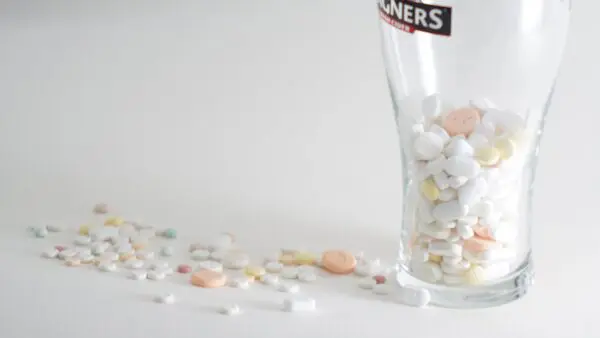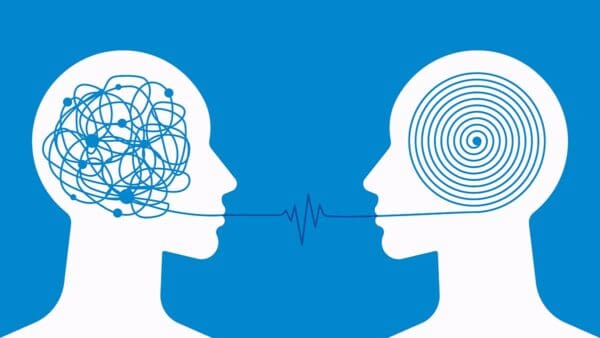Medical Editor: Dr. Lynn Marie Morski, MD, Esq
Lysergic acid diethylamide (LSD), commonly referred to as acid, is probably most well known in the United States for its popularity during the 1960s counterculture movement, but it has since re-emerged as the subject of continued speculation for its potential uses as a therapeutic tool.
While some critics of psychedelics claim otherwise, LSD is a drug with a low potential for abuse. In fact, researchers are beginning to consider the possibility of its efficacy in the treatment of addiction. Even the Alcoholics Anonymous founder Bill Wilson believed that LSD could offer hope to those struggling with certain substance use issues.
Is there any evidence to support the theory that LSD can help treat addiction? In this article, we will unpack what is known and has yet to be determined, as well as what the future might hold for research efforts.
What is LSD?
LSD is a semi-synthetic psychedelic substance derived from a fungus called Claviceps purpura, a type of ergot. LSD can cause intense examination of emotions and events in the past or present, speculation for the future, perception of additional dimensions, and profound awareness of that which was previously unrealized. Of course, every substance affects each individual somewhat differently, but these are some of the most common experiences.
LSD works on the brain by altering the communication between the regions that are believed to limit a person’s intake of sensory information and create the subjective experience of the ego, or our narrative sense of “I.” These brain regions are referred to as the default mode network (DMN), which may be responsible for repressing consciousness. LSD appears to temporarily dampen the activity of the DMN, leading to greater communication between other brain regions. The dampened activity of the DMN has been shown to correlate with the subject experience of “ego-death” or “ego-dissolution.” Although experiencing ego-death can be scary, it often culminates in feelings of connectivity to something greater than oneself. It is just one example of the kinds of mystical experiences that psilocybin might induce that are thought to have therapeutic benefits.
There are several ways to ingest LSD. It is most commonly ingested orally as a portion of blotter paper or dissolved in liquid, however, LSD can also be administered topically, nasally, or through other forms of inhalation. It should be noted that currently, it is not legal for personal use or possession outside of a federally-approved clinical research setting.
Any substance or medicine used in or outside of a clinical setting may cause side effects that are sometimes serious and may be dangerous for those with existing mental and physical health conditions. The effects of a full dose can include hallucinations and dissociation accompanied by a distorted or enhanced relationship to reality and interpretation of sensations. For more information about LSD and its potential side effects and risks, read Psychable’s Beginner’s Guide to LSD.
Treating Addiction with LSD: Does it Work?
From the 1950s to the 1970s, LSD was studied for its potential benefit in treating conditions like mood and personality disorders, anxiety, depression, as well as substance use disorders. Recent efforts have reopened certain inquiries (such as how LSD might help alleviate anxiety in adults dealing with a life-threatening illness), but there is still so much more to know before LSD can be considered as a possible treatment for additional mental health issues.
Even so, its early role in addiction recovery treatments from the 1950s to 70s had shown promising results. In an analysis of clinical studies conducted at inpatient alcohol recovery centers between 1966 and 1970, 58 percent of participants who were given one dose of LSD during a single therapy session reduced or eliminated their alcohol intake, as opposed to 38 percent of the subjects who were not given doses of LSD. Those treated with LSD were also 15 percent more likely to remain sober six months after the completion of inpatient treatment.
While studies from the 1960s and 70s do not satisfy the requirements of a modern clinical trial, they certainly suggest that deeper investigation into the possibility of using LSD in the treatment of addiction is warranted.
Researchers are exploring the possibility of studying the temporary state of disruption in the DMN during an experience with LSD that might be able to increase neural plasticity and change habitual thought patterns. If studies demonstrate this to be a reality, it might open doors for testing how the substance can reset behavioral patterns that influence addiction.
When LSD is administered, the limitations imposed by the DMN are temporarily removed and there is greater cognitive fluidity. LSD binds to both serotonin 2A and dopamine receptors in the brain and initiates a subsequent biological response, which may explain the common effects of emotional openness, peace, and connectedness to something that feels meaningful (like the universe as a whole or the divine). Such a mental state, though temporary, could offer a long-term solution to some of the underlying problems of addiction such as feelings of worthlessness, inability to cope with trauma, or disconnectedness to greater meaning (should the ultimate results prove to be lasting).
Recent evidence for the efficacy of treating addiction with LSD largely consists of personal, anecdotal accounts, though organizations like the Multidisciplinary Association for Psychedelic Studies (MAPS) are proposing new studies for its use in other areas of mental health. If trials show promising results, it is possible that modern studies directly related to LSD for addiction may be initiated.
Though evidence in the 1960s and 70s suggested that LSD might be effective in treating addictive behavior related to alcohol, it is possible that further research could indicate similar applications in cases of other substance use disorders in the future.
Closing thoughts and resources
LSD is currently a Schedule I drug in the United States and is illegal for use outside of clinical settings or to formulate for personal use. Beyond this, LSD obtained illegally is sometimes adulterated with other substances and may be dangerous.
If you or someone you know is struggling with addiction, do not wait to find help. Substance use can be a serious problem and pose risks to your overall health and well-being. Severe situations might be life-threatening, so it is crucial to seek treatment immediately.
If you need help or more information about options for treatment, the Substance Abuse and Mental Health Administration (SAMHSA) offers a toll-free helpline at 1-800-662-HELP (4357). Resources are also available at https://www.findtreatment.gov.
If you have had an independent experience with LSD and would like to process it with a knowledgeable practitioner who specializes in integration, there are listings available here on Psychable or on the MAPS website.







